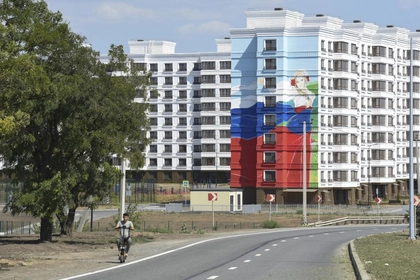For most young men, turning 18 brings with it some monumental and potentially life-changing decisions – work or university? Gap year or straight to campus? Follow your friends or venture out on your own?
Since the start of Russia’s full-scale invasion, 17-year-old Ukrainian boys have been faced with one much more difficult and fundamentally life-altering choice – to stay or not to stay?
- See the latest war in ukraine update in the Kyiv Post’s news bulletins released today.
- Examine the most contemporary Ukraine news that came out today.
JOIN US ON TELEGRAM
Follow our coverage of the war on the @Kyivpost_official.
Under Ukrainian martial law, which has been in place since February of last year, men aged 18 to 60 are prohibited from travelling abroad and are potentially subject to conscription into the Armed Forces of Ukraine (AFU).
The AFU have for the most part managed to fill ranks with volunteers and is currently far from the point of needing to conscript as many males as possible as soon as they turn 18, but with no immediate end to the war or martial law in sight, those coming of age face an uncertain future.
For some, like Ruslan, the prospect of being sent to war was enough to make him decide to leave Ukraine. “I left in February somewhat spontaneously,” he tells Kyiv Post. “The main reason was that I don’t want to fight and none of my relatives want me to either.
“I am a patriot of Ukraine, but I’m definitely not ready to die, especially at such a young age. I am ready to support the Armed Forces of Ukraine as soon as I earn enough money.”

Moscow Imposes Russian Car Insurance in Occupied Ukraine by 2025
While safer than serving on the front lines, being a 17-year-old civilian in Ukraine can still be dangerous – two were among the four children injured overnight in Russia’s latest missile barrage against the port city of Odesa.
According to Ukrainian government figures, as of July 22, 496 Ukrainian children had been killed and 1,564 injured since the start of Russia’s full- scale invasion, though the real figure is “not final” and likely far higher.
Ruslan’s mother, Diana, told Kyiv Post: “So far, I’m glad he’s gone. Because in addition to the experience which he will gain and more opportunities for development, he is safe.”
For other 17-year-olds, worries about potentially being conscripted were displaced by a desire to pursue their chosen careers which they see as best served in their home country.
“I had and still have thoughts about leaving Ukraine,” Daniel tells Kyiv Post. “I thought about what would be best for me and discovered personal pros and cons.
“And the main factor for me is the career that I plan to build in Ukraine – football, which I have been working on for 11 years now already. That’s why I decided to stay in the country.”
I am a patriot of Ukraine, but I’m definitely not ready to die.
Asked about the prospect of being called up to fight, 17-year-old Dmytro currently living in Ukraine says the thought “sometimes bothers me” but adds: “It seems to me that they give [call up papers] to guys at the age of 20-21 and those who aren’t studying at university.
“So I hope that the war will end in a few years. But in any case, everything will already be as it will be.”
While staying in Ukraine comes with the many obvious risks of living in a warzone, the prospect of moving abroad raises other, perhaps less lethal but no less valid, concerns for a young adult.
“I don’t want to leave my family, friends and go into uncertainty, where no one and nothing is waiting for me,” Dmytro says.
Seventeen-year-old designer and dancer ‘SXXY’ similarly feels there are more opportunities for him in Ukraine despite the ongoing war.
Having spent time in two different European countries since the start of Russia’s full-scale invasion, he came back home “because in Ukraine I feel freer as a creator.”
With an eye to a postwar Ukraine, he adds: “I want to develop our cultural front so that Europe and America pay attention to the prospects of design, choreography and creativity in Ukraine.
“The way we are developing is good, but we need to reach a new level. I want to make sure that our creativity goes beyond the borders of the country more.”
For young men who want to stay in Ukraine but don’t want to be confined to its borders for the duration of martial law, there are a few options that give the best of both worlds.
Seventeen-year-old Leonid has enrolled in Maritime College with the aim of becoming a sailor, a job that would combine training and being based in Ukraine with long periods at sea or abroad, one of the careers exempt from martial law restrictions.
“I chose the profession of a sailor, perhaps because of a certain romanticization and the ability to travel,” Leonid tells Kyiv Post.
He also believes being at sea could provide some relief from the everyday stresses of living in a warzone, adding: “A big advantage of the profession is also the ability to temporarily separate from everyone and everything that happens on land.”
But for some who are already 18 years old the decision was made for them by having left Ukraine with their families when they were a year younger. Kyrylo, who turned 18 in March, moved to Germany with his family last year.
He’s settled well into his new country and made new friends, but misses his old friends and yearns to take a walk with them and celebrate his old school’s graduation.
“Because in Ukraine, I had already laid the foundation of my life,” he says.
You can also highlight the text and press Ctrl + Enter






